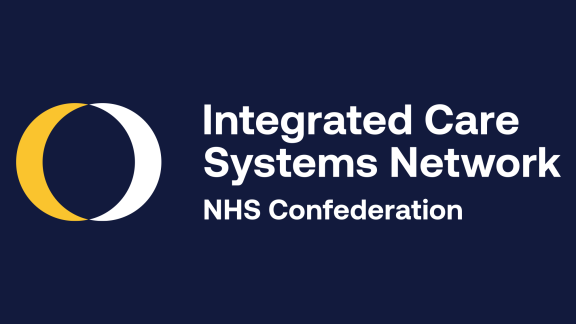The Hewitt review: next steps and implementation

Ahead of the government’s response to the Hewitt review, Sarah Walter outlines the priority areas that ICS leaders say will have the biggest impact on ICSs' future success.
Patricia Hewitt’s recent review of the oversight and accountability of integrated care systems provided an important opportunity to consider how integrated care systems (ICSs) can best be enabled to succeed. While the Health and Care Act 2022 created the structures for integrating care, the review recognised that shifting resources to prevention to keep people healthier, and better integrate services, will require cultural and behavioural change at all levels.
While the government has not yet formally responded to the review, there are promising signs that there is support for almost all of its recommendations at a national level - something which is unsurprising given the level of engagement that went into the review. We will work with our ICS members, key partners in government, NHS England, the LGA and others to support its implementation.
Leaders of integrated care boards and integrated care partnerships have consistently told us that delivering prevention is their key priority
Some of the recommendations require changes within ICSs themselves, and ICS leaders have been enthusiastic to begin work to support implementation, initiating discussions with system partners about what this looks like in their own system. Since the report was published in April, we have been working closely with our ICS Network members to understand their priority areas to collectively rally around, and to identify a smaller number of priorities that will have the biggest impact on their future success. Leaders of integrated care boards (ICBs) and integrated care partnerships have consistently told us that delivering prevention is their key priority. The priority recommendations that have emerged are those that advance that goal:
Priority short-term recommendations:
- Defining prevention – ICS leaders see the shift towards preventative services and interventions as fundamental to ICSs’ mission and developing a clear definition of preventative services will provide the foundation for ambitious change and help to understand best practice.
- Fewer national targets – A smaller number of national targets, which allow equal weight for local priorities, is fundamental to devolution to system and place level, empowering local leaders to lead and shift resources to prevention.
- Allocations and payment mechanism flexibility – Rolling a greater share of ICS funding into ICBs’ overall allocations, rather than the ‘drip drip’ of pay packets with additional reporting requirements, and an immediate change in NHS Payment Scheme guidance to allow flexibility for intra-system payments, are crucial to increasing efficiency and achieving a shift to prevention.
- Regulation – The review proposes a new role for the CQC in relation to systems which will take time to get right. It also proposes new High Accountability and Responsibility Partnerships (HARPs), which would allow the most mature ICSs greater freedoms.
- ICBs’ Running Cost Allowance (RCA) reduction – Scaling back the RCA reduction to only 20 per cent, rather than 30 per cent, before Budget 2024 would allow systems to focus on access and productivity, rather than organisational restructuring.
Priority longer-term recommendations:
- Capital – Lack of readily available capital is a drag on the transformation needed to improve services and productivity. A rapid review of the capital sign-off process will help make sure that existing budgets are reaching projects quickly and best used to meet local needs.
- New NHS payment mechanism – While allowing greater flexibility on intra-system payment mechanisms will help in the short-term, in the longer-term ICS leaders welcome the proposal to create a bespoke payment mechanism, learning from best practice internationally.
- Social care – ICS leaders report that integration will be hindered by lack of capacity across the social care sector including for younger adults, not just older people. A strategy for the social care workforce, complementary to the NHS workforce plan, is needed.
The NHS Confederation will work with partners, including in our influencing around the next general election, to press for implementation of these recommendations. In addition to these priorities there will also be other areas, such as improving peer review, where we can work with members and partners to get on and deliver.
Responses to the review
NHS England will not formally respond to the review until after the government, but has taken the opportunity of the review to build on the implementation of its new operating framework. There has been a perceptible difference in the tone of some processes for developing policy and guidance, such as the co-development that has gone into the planning guidance, oversight framework and ICB Partnership Governance Self-Assessment process. The CQC’s approach to assessing ICSs is also aligned with the review’s recommendations. However, we know that the planning round has been difficult for many and some ICSs are cautious of the risk of financial and operational pressures pushing behaviour in the opposite direction without a sustained commitment to change.
The Hewitt review has shown there is substantial agreement on the need for a fundamental shift in the model of health and care in the UK from one of treating ill health to one of preventing it in the first place; a view that is supported by recent publications from think tanks Demos and IPPR as well as the Health and Care Committee. This is by no means a new idea, but Patricia Hewitt, her ICS peers and the many other stakeholders involved in developing the review have provided a helpful blueprint to achieve the vision.
We hope that the government’s imminent response to the review will lift the blueprint off the page and give ICSs the conditions they need nationally to succeed locally.
Sarah Walter is director of the NHS Confederation’s ICS Network. You can follow Sarah on Twitter @sarahjwalter



